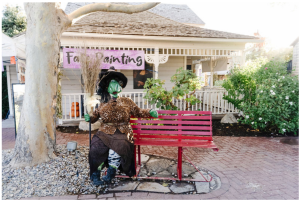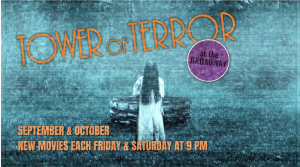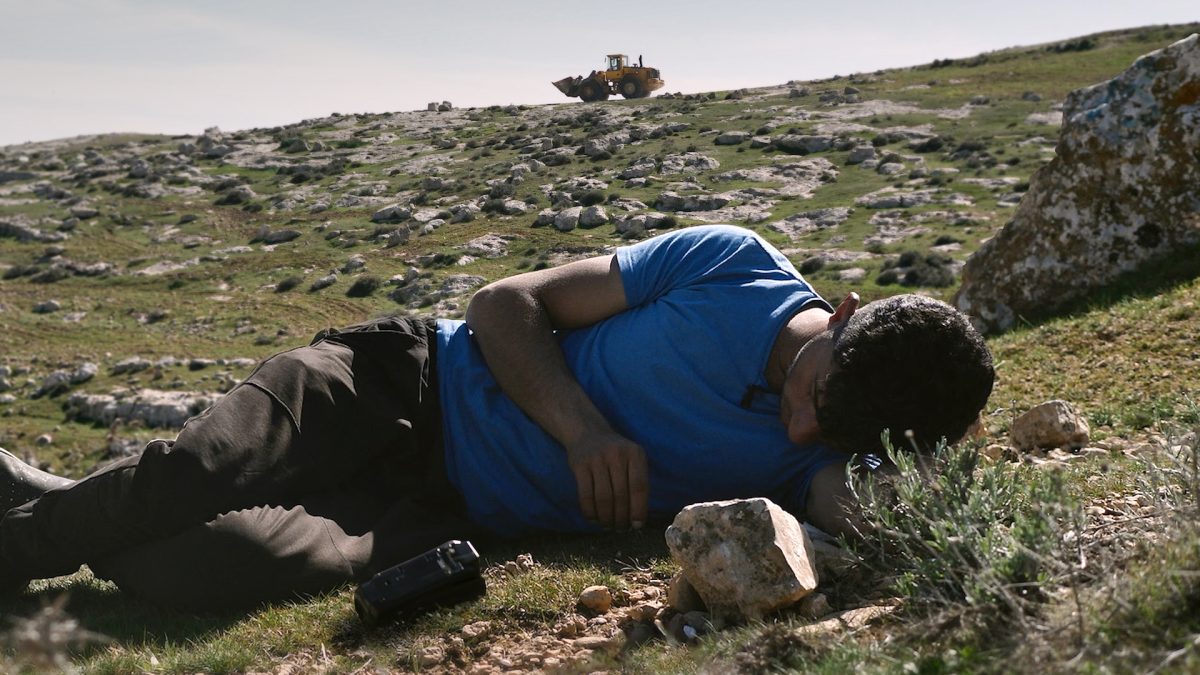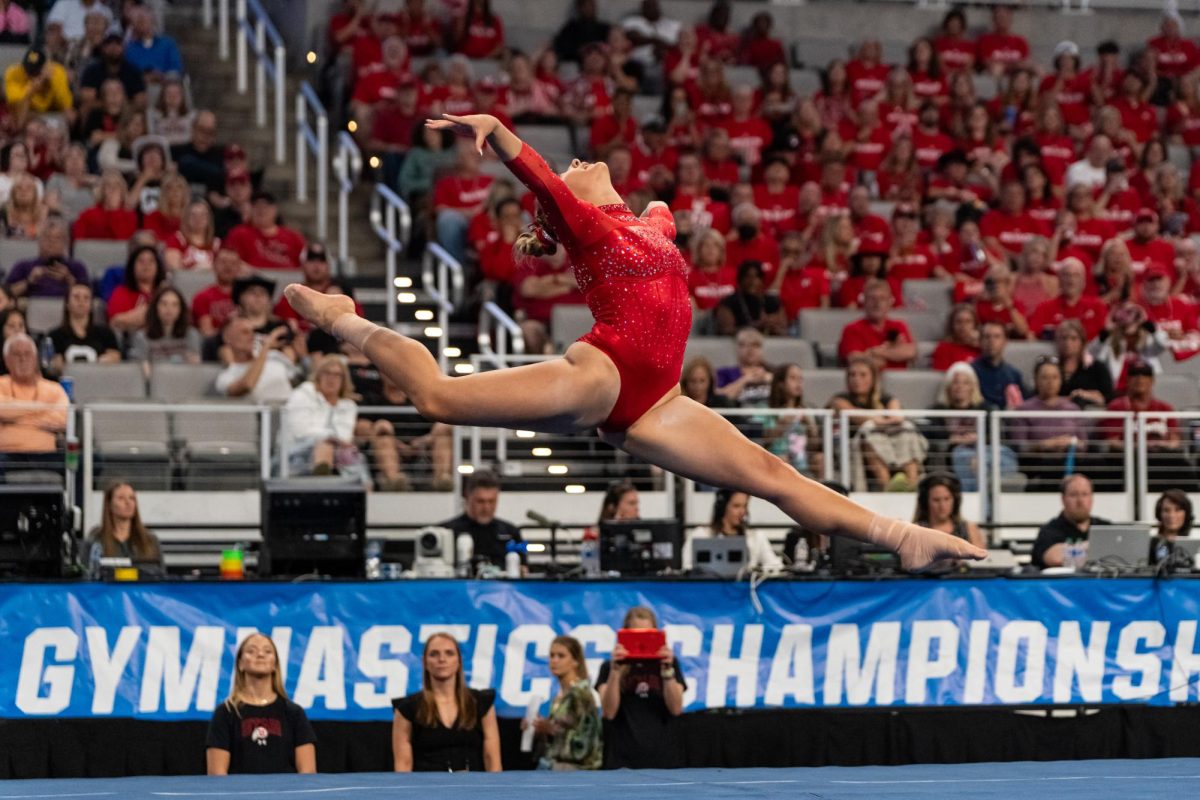Utah Opera Company’s Production of ‘The Flying Dutchman’ Creates a Stormy Ocean of Emotion
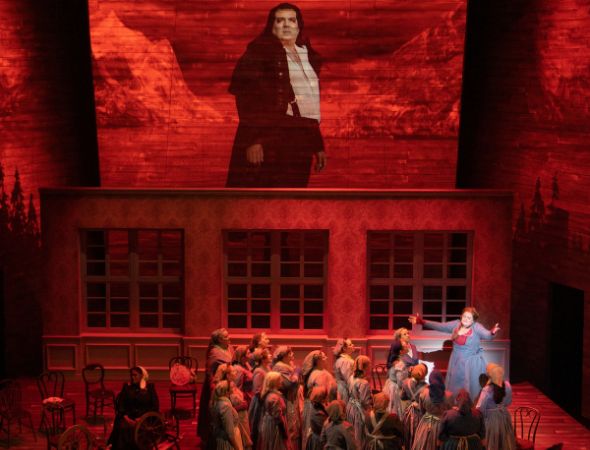
Utah Opera Company’s 2022 production of “The Flying Dutchman.” (Photo by Dana Sohm | Courtesy of Utahopera.org)
October 22, 2022
Utah Opera Company‘s production of Richard Wagner‘s “The Flying Dutchman” fully lives up to the term “operatic.” All of the connotations that arise from opera can be found within the production: sweeping arias, opulent and bombastic orchestrations, grand tragedy and characters with emotions heightened to a point that no one else has ever felt. There is nothing of honest human experience within Wagner’s opera, but if one meets it on its own terms, it will transport you to a world you have never felt before.
Not Your Childhood Flying Dutchman
This is not The Flying Dutchman from “Spongebob Squarepants” or “Pirates of the Caribbean.” In Wagner’s German-language opera, The Flying Dutchman, Michael Chioldi, is a ghost cursed, by the Prince of Darkness himself, to sail the seas until he finds a woman who would be faithful unto death. Chioldi plays the role with brooding, Byronic gravitas, despite being made up to resemble Gríma Wormtongue from “The Lord of the Rings.”
The opera begins with a crew of Norwegian sailors taking shelter from a storm along a bay. Fate is not anyone’s friend as they are happened upon by the ship of The Flying Dutchman and his crew. A ghost is not seen, despite the crew looking like Samara from “The Ring” dipped in ink, but a fellow sailor, the Captain Daland, Kristinn Sigmundsson, befriends The Flying Dutchman. When Daland mentions his young daughter Senta (Wendy Bryn Harmer) during a conversation, The Flying Dutchman asks for her hand in marriage in exchange for the treasures on his ship.
Back in the small Norwegian village, Senta is an outsider. She’s dreamy, self-absorbed and obsessed to distraction with the myth of The Flying Dutchman. She thinks of little else other than her life mission to save the fabled figure of The Flying Dutchman through her love and fidelity. Senta has caught the eye of the Huntsmen Erik, a Gaston-lite figure, but when her father arrives from his travels at sea with a brooding stranger, she is drawn like a moth to a flame. Senta’s obsession leads to both tragedy and a morbid redemption.
Sturm Und Drang
“The Flying Dutchman” is a piece of German romantic sturm und drang. It’s emotionally overwrought and expressionistic, sweeping, compelling and touched by an obsessive madness matching those of its characters. The critic Gregory D. Kershner applied a Freudian reading to the opera and found “The Flying Dutchman” to be “a profoundly psychotic opera,” with all of the central characters presented as neurotic, narcissistic and unable to integrate into society. There is no temperance, there is no subtext with “The Flying Dutchman.” From the emotions of the characters, to the performances, to the music, to the production, nothing is held back. It is perhaps even too big of an opera for the Capitol Theater.
Groundbreaking Music Score
Wagner’s fourth opera, “The Flying Dutchman” marks a fulcrum point for the composer, a North Star pointing toward his later work such as “Tristan und Isolde,” “Lohengrin” and “The Ring Cycle.” Critic Michael Clive writes in “Richard Wagner in Search of Himself,” “[The Flying Dutchman transforms] not just opera as an art form, but the history of art itself.”
With “The Flying Dutchman,” Wagner introduced leitmotifs into his work, a musical phrase that represents a specific character, theme or emotion. While Wagner was not the inventor of leitmotifs, he made the concept his own and inspired nearly every single composer of an opera or film score from then on.
I cannot praise the score for “The Flying Dutchman” highly enough. It’s devastatingly, hauntingly beautiful. French horns are transformed into the gray waves of a stormy sea that pummel over the audience and wrap themselves around you. While on their own, Chioldi and Harmer are unable to form a connection as performers and convey believable chemistry, Wagner’s soaring Act Two love duet makes you believe in the romance, if only for as long as the duet plays.
As performed by the Utah Opera Company, “The Flying Dutchman” is a tempestuous and vividly emotional music-drama that anyone with any sort of interest in opera should see.




